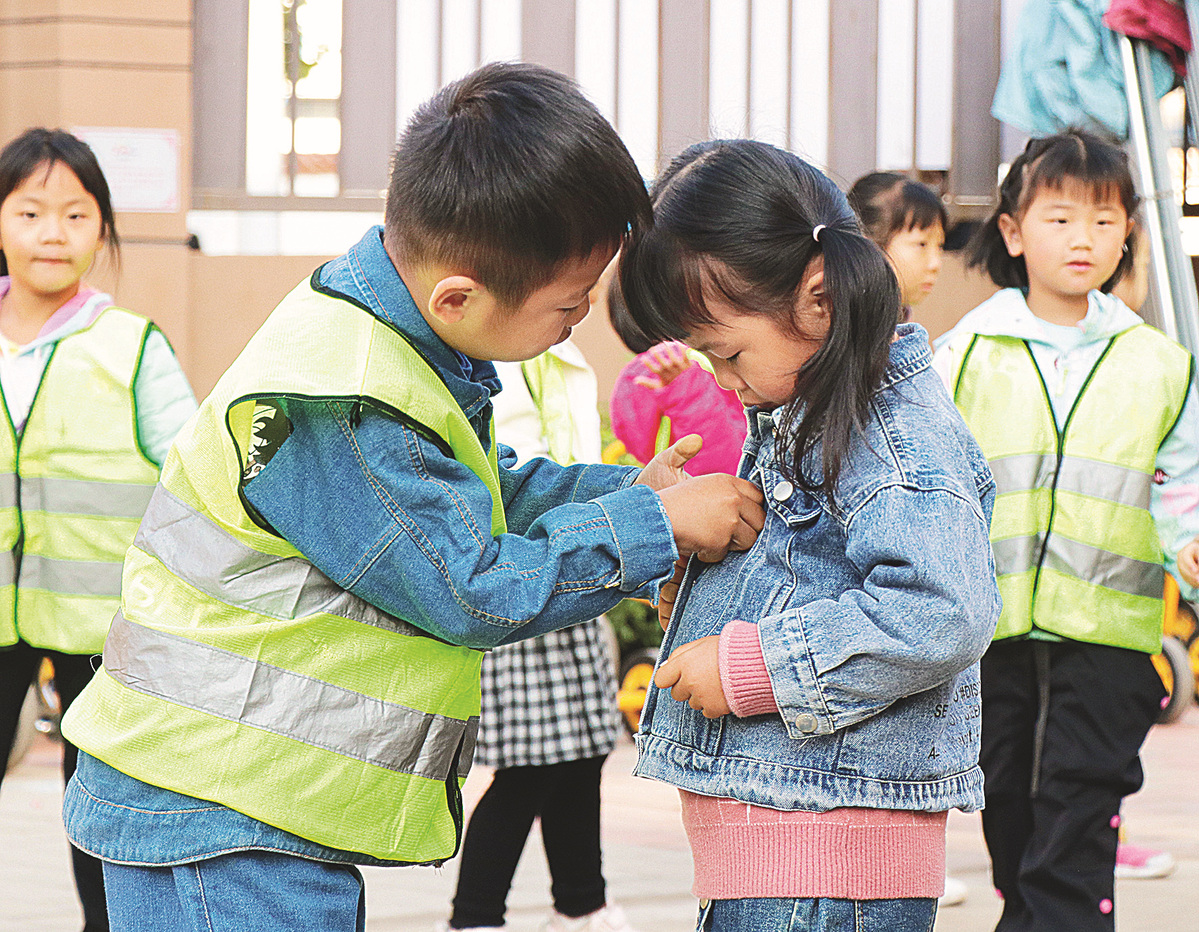Kindergarten helps promote drive for inclusive education


Specific role
Qisehua, founded by a company overseen by the Zhengzhou Civil Affairs Bureau, was specifically tasked with providing places for the children of people with disabilities.
In 1991, when Cai Lei was appointed as principal, she recalled how, as a teacher at a different kindergarten in the 1980s, she watched as a girl with Down syndrome was rejected.
"I was touched by seeing the girl grab the iron railings of the kindergarten's gate and try hard to say, 'Mom, I want to go to kindergarten.' Children with special needs are also children, and they also need education," she said.
Cai's father was an orphan. He was adopted by Cai's surrogate grandmother, who also raised many other orphans.
Her family background has given Cai a deep sense of empathy, so she quickly pushed for the kindergarten to begin receiving children with special needs, such as those with autism, Down syndrome, cerebral palsy and delayed development issues.
Liang Tian, who succeeded Cai as principal in 2015, said that before a special needs child enters the kindergarten, the teachers are provided with detailed information about his or her behavior and hobbies.
Then, when the child is introduced to his or her nondisabled peers, the teachers explain their interests and strong points, along with the correct way of approaching them and making friends.
"Children with special needs are faced with challenges in handling their daily lives. Our teachers and the nondisabled children discuss the correct ways to deal with unexpected situations and protect themselves. For example, a child with special needs may lose their temper and disturb the other children," Liang said.
She noted that when the kindergarten first admitted special needs children and placed them in classes with their nondisabled peers, parents began removing their children. Within six months, 87 of the total 118 had left.
"Some parents were concerned that their children would imitate the behavior of the special needs kids, which they thought would inhibit their intellectual development. That was because they knew very little about the special needs group," Liang said.
In the days when student numbers were low, the kindergarten had severe financial problems. It moved six times before 2020, when a permanent location was found for it after Zhengzhou's Guancheng Hui District approved 0.4 hectares of land for Qisehua's use.
"We never thought of giving up, because having taught so many kids with special needs, we knew their potential," Liang said.
"By communicating with their nondisabled peers, they can learn interpersonal skills and social rules. If they don't play or study with other kids at a young age, things will be even harder when they grow up."
- Spring Festival travel expected to reach record high
- C919 begins Shanghai-HK regular flight
- Mount Qomolangma's foreign tourist number doubles in 2024
- Yuyuan Garden lights up with Year of the Snake lantern installations
- New dendrobium orchid species found in Sichuan
- People welcome the New Year across China





































